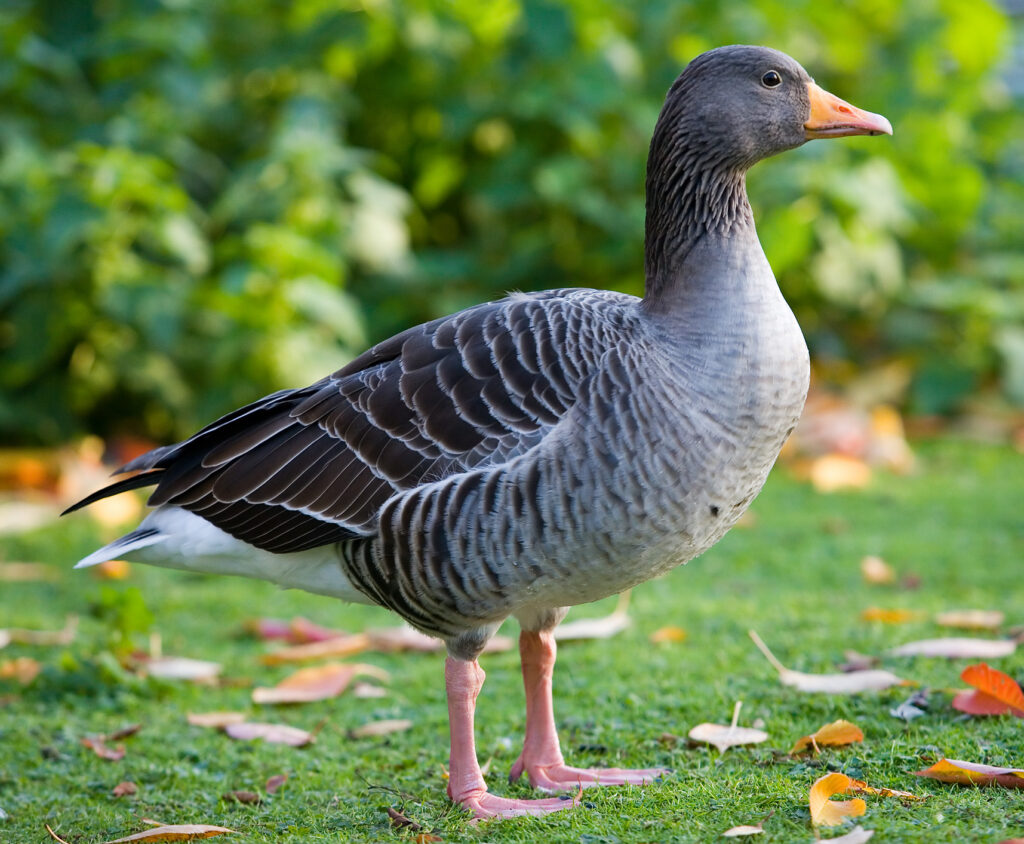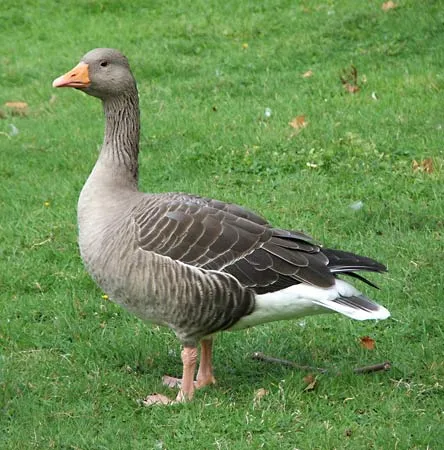
You’re absolutely right!
The Greylag Goose (Anser anser) is the largest and one of the most well-known wild geese in Europe and Asia. Here’s a detailed overview:

🪶 Appearance
- Color: Gray-brown plumage with paler underparts.
- Beak: Pink or orange beak, depending on the subspecies.
- Legs: Pinkish legs.
- Size: 75–90 cm (30–35 in) long, wingspan up to 180 cm (71 in).
🌍 Range & Habitat
- Native Range: Europe and Asia; migratory populations breed in northern Europe and winter in southern Europe, Africa, and India.
- Habitat: Wetlands, lakes, rivers, farmland, and grasslands. Often found in open country near water.
🧬 Domestication
- The Greylag is the wild ancestor of most domestic geese in Europe. Selective breeding from Greylags has led to breeds like the Embden and Toulouse geese.
🐣 Breeding & Behavior
- Nesting: Ground nests near water, often hidden in reeds or vegetation.
- Clutch Size: 3–6 eggs.
- Behavior: Gregarious outside of breeding season; strong flyers and long-distance migrants.
🔊 Vocalizations
- Their honking is lower-pitched and more nasal than the Canada Goose.
- Often heard in flight in large, noisy flocks.
🌱 Diet
- Primarily herbivorous: grasses, grains, aquatic plants.
- Will graze in fields and farmland.
🧭 Fun Fact
The name “Greylag” may come from the fact that it lags behind other geese in migrating, sometimes staying longer into the season.
Would you like a photo of the Greylag Goose too?